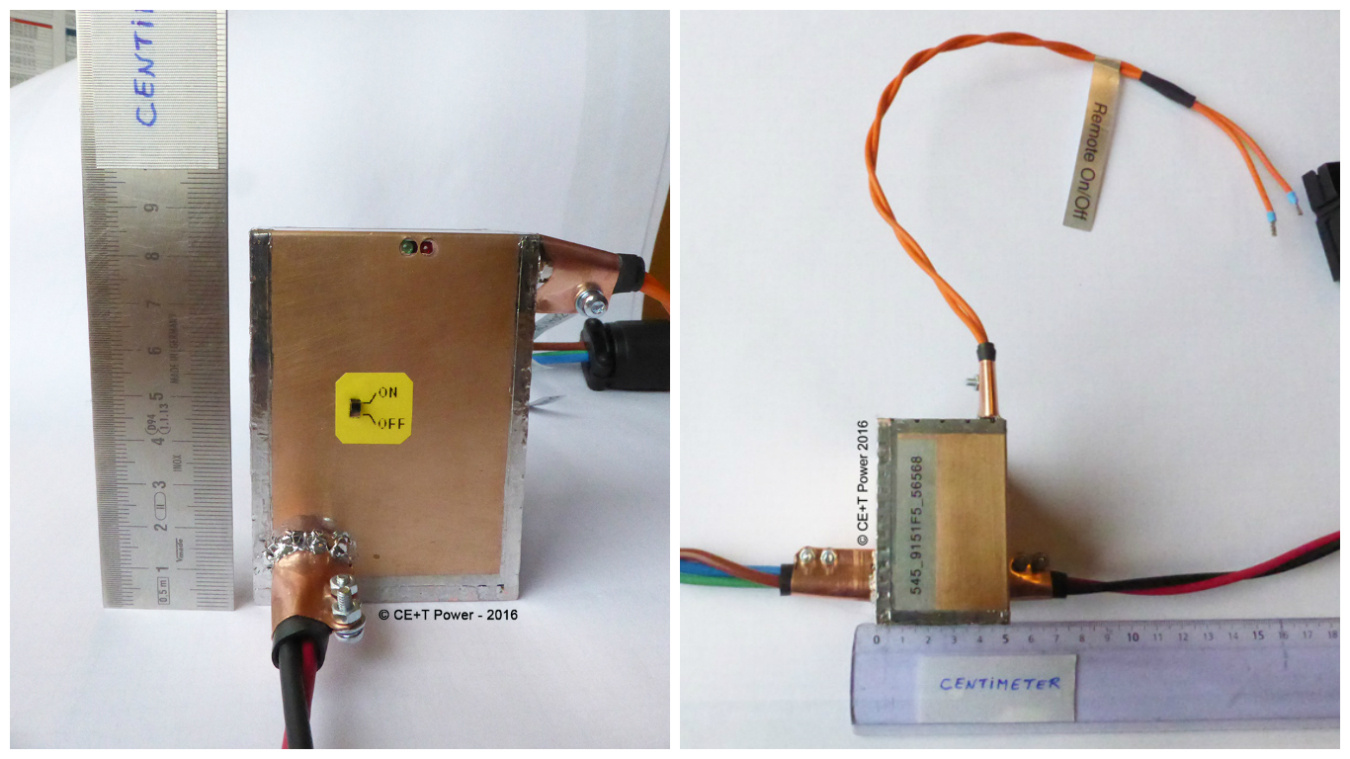
Photo Courtesy | CET+Power
Last month, Google and the Institute of Electrical and Electronics Engineers (IEEE) announced Belgium’s Red Electrical Devils (a team from CE+T Power) as the winner of the Little Box Challenge, a competition to invent smaller, more efficient inverters that connect solar power systems to the electric grid. The team won a $1 million prize for proving that residential photovoltaic inverters can be as small as a tablet, which is 10-times smaller than the state-of-the-art inverter. With funding from the SunShot Initiative, the Energy Department’s National Renewable Energy Laboratory (NREL) provided critical evaluation of the 18 finalists’ inverters, which were tested at the Energy Systems Integration Facility.
Each team’s inverter went through several steps of challenges to see how it would work in the field. First, inverters had to meet all critical safety-related inspections and function normally. Next, inverters had to complete three-hour procedures at different operating points and verify key challenge specifications were met. The remaining inverters went through 100-hour testing under simulated real-life conditions.
Judges declared Red Electrical Devils the winner because the team’s inverter had a power density far greater than the minimum requirement and was 50% higher than the nearest competitor. The inverter also performed better on measurements of electromagnetic compliance, which is the amount of electrical noise emitted from the unit. Inverters from Schneider Electric and the Virginia Tech Future Energy Electronics Center received honorable mentions.
A key factor in the winning designs was the use of wide bandgap semiconductors, a technology that enables power electronics to operate at higher voltages and conversion frequency, allowing them to transmit more energy through a smaller volume. Leading teams were also innovative in their cooling designs and packaging techniques. Shrinking inverters and making them cheaper to produce and install will enable more solar-powered homes and more efficient distribution grids, while helping to bring electricity to remote areas.
The NREL-Google partnership was supported by the SunShot Initiative through the New Partnerships Agreements program. These agreements encourage national labs to partner with industry to solve challenging problems by utilizing the labs’ world-class scientific expertise and research facilities. Learn more about NREL’s role in the Little Box Challenge.
The Office of Energy Efficiency and Renewable Energy (EERE) success stories highlight the positive impact of its work with businesses, industry partners, universities, research labs, and other entities.
